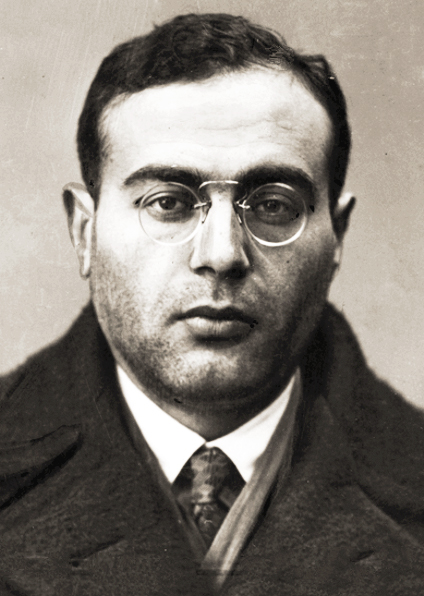Alfred Lampe on:
[Wikipedia]
[Google]
[Amazon]
 Alfred Lampe (14 May 1900 – 10 December 1943) was a Polish communist politician and journalist.
Alfred Lampe (14 May 1900 – 10 December 1943) was a Polish communist politician and journalist.
 Alfred Lampe (14 May 1900 – 10 December 1943) was a Polish communist politician and journalist.
Alfred Lampe (14 May 1900 – 10 December 1943) was a Polish communist politician and journalist.
Biography
Lampe was born into aJewish
Jews ( he, יְהוּדִים, , ) or Jewish people are an ethnoreligious group and nation originating from the Israelites Israelite origins and kingdom: "The first act in the long drama of Jewish history is the age of the Israelites""The ...
working-class family in Warsaw
Warsaw ( pl, Warszawa, ), officially the Capital City of Warsaw,, abbreviation: ''m.st. Warszawa'' is the capital and largest city of Poland. The metropolis stands on the River Vistula in east-central Poland, and its population is officia ...
. He was a member of Poale Zion
Poale Zion (also spelled Poalei Tziyon or Poaley Syjon, meaning "Workers of Zion") was a movement of Marxist–Zionist Jewish workers founded in various cities of Poland, Europe and the Russian Empire in about the turn of the 20th century after ...
from 1918 to 1921. In 1921, he joined the Communist Party of Poland
The interwar Communist Party of Poland ( pl, Komunistyczna Partia Polski, KPP) was a communist party active in Poland during the Second Polish Republic. It resulted from a December 1918 merger of the Social Democracy of the Kingdom of Poland a ...
(KPP). In 1922, at the founding congress of the Young Communist League of Poland (ZMKwP), the youth wing of the KPP, he was made Secretary of the organization. In 1926, Lampe was also elected to the Central Committee of the KPP, and in 1929 he became a member of the Politburo.
In 1932, Lampe moved to the Soviet Union
The Soviet Union,. officially the Union of Soviet Socialist Republics. (USSR),. was a List of former transcontinental countries#Since 1700, transcontinental country that spanned much of Eurasia from 1922 to 1991. A flagship communist state, ...
as a KPP representative to the Red International of Labor Unions
The Red International of Labor Unions (russian: Красный интернационал профсоюзов, translit=Krasnyi internatsional profsoyuzov, RILU), commonly known as the Profintern, was an international body established by the Comm ...
in Moscow
Moscow ( , US chiefly ; rus, links=no, Москва, r=Moskva, p=mɐskˈva, a=Москва.ogg) is the capital and largest city of Russia. The city stands on the Moskva River in Central Russia, with a population estimated at 13.0 millio ...
. After his return to Poland the following year, he was arrested and sentenced to 15 years in prison in 1935. At the outbreak of World War II
World War II or the Second World War, often abbreviated as WWII or WW2, was a world war that lasted from 1939 to 1945. It involved the vast majority of the world's countries—including all of the great powers—forming two opposing ...
in 1939, Lampe was freed and fled to Białystok (after the Soviet invasion of Poland
The Soviet invasion of Poland was a military operation by the Soviet Union without a formal declaration of war. On 17 September 1939, the Soviet Union invaded Poland from the east, 16 days after Nazi Germany invaded Poland from the west. Subs ...
a part of the Soviet-occupied zone). The rest of his life Lampe spent in the Soviet Union; he served there as editor of the Polish-language magazines '' Nowe Widnokręgi'' ('New Horizons') and ''Wolna Polska'' ('The Free Poland'). In 1943, together with Wanda Wasilewska
ukr, Ванда Львівна Василевська rus, Ванда Львовна Василевская
, native_name_lang =
, birth_date =
, birth_place = Kraków, Austria-Hungary
, death_date =
, death_place ...
, he co-founded the Union of Polish Patriots
Union of Polish Patriots (''Society of Polish Patriots'', pl, Związek Patriotów Polskich, ZPP, russian: Союз Польских Патриотов, СПП) was a political body created by Polish communists in the Soviet Union in 1943. The ...
(ZPP). Participated in the organization's First Congress in June 1943. In the same year, Lampe also participated in the creation of the 1st Tadeusz Kościuszko Infantry Division
The Polish 1st Tadeusz Kościuszko Infantry Division ( pl, 1 Polska Dywizja Piechoty im. Tadeusza Kościuszki) was an infantry division in the Polish armed forces formed in 1943 and named for the Polish and American revolutionary Tadeusz Kośc ...
.
In the Soviet Union, Lampe was an ideologist and planner of the future communist-led Poland. His book ''Miejsce Polski w Europie'' ('Poland's place in Europe') was published by the ZPP.Lucyna Tychowa and Andrzej Romanowski, ''Tak, jestem córką Jakuba Bermana'' es, I'm the Daughter of Jakub Berman p. 78. UNIVERSITAS, Kraków 2016, .
Lampe died of a heart attack
A myocardial infarction (MI), commonly known as a heart attack, occurs when blood flow decreases or stops to the coronary artery of the heart, causing damage to the heart muscle. The most common symptom is chest pain or discomfort which ma ...
in Moscow in December 1943. After the war, his ashes were interred at the Powązki Military Cemetery
Powązki Military Cemetery (; pl, Cmentarz Wojskowy na Powązkach) is an old military cemetery located in the Żoliborz district, western part of Warsaw, Poland. The cemetery is often confused with the older Powązki Cemetery, known colloquial ...
in Warsaw. He was posthumously awarded the Order of the Cross of Grunwald
The Order of the Cross of Grunwald (') was a military decoration created in Poland in November 1943 by the High Command of Gwardia Ludowa, a World War II Polish resistance movement organised by the Polish Workers Party. On 20 February 1944 it w ...
, 1st class.
References